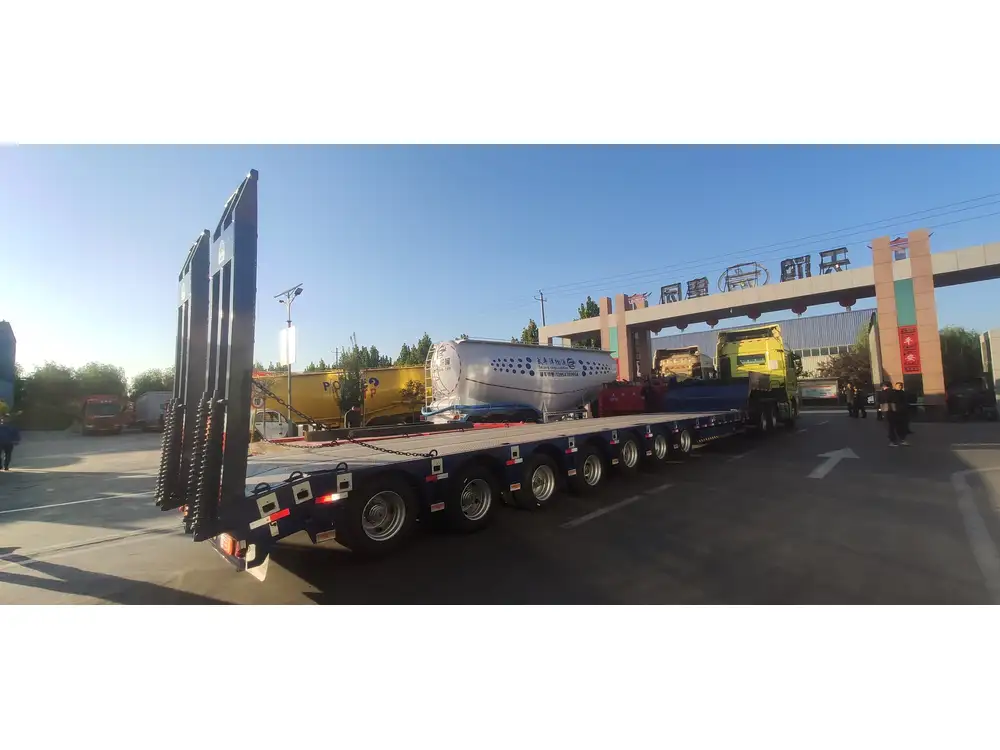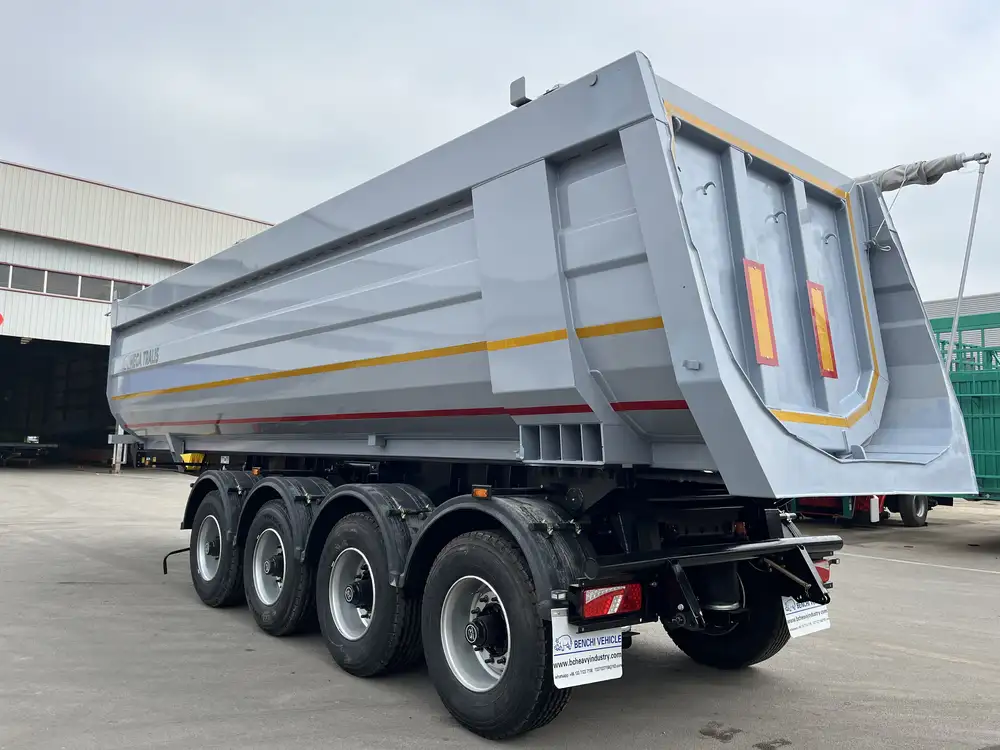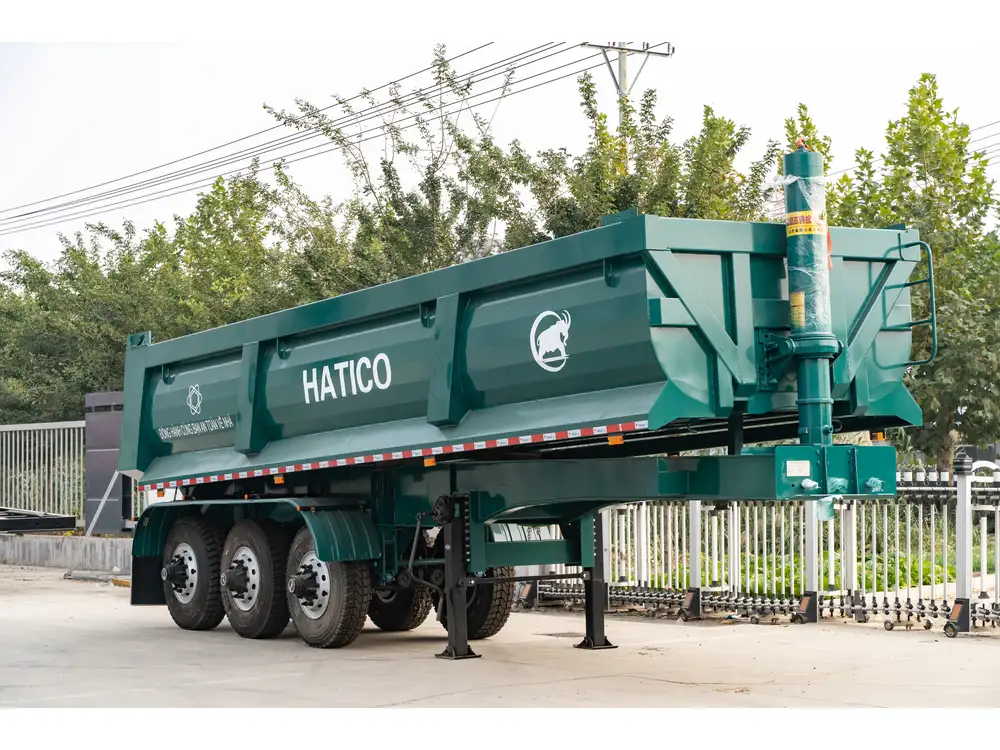Introduction to Skeletal Trailers
Skeletal trailers are specialized vehicles predominantly used in the transport sector. Their distinctive design—characterized by a lightweight skeleton frame—allows them to carry shipping containers efficiently. This functionality yields significant advantages in terms of cargo versatility, weight optimization, and enhanced fuel efficiency.
Overview of Skeletal Trailers
| Feature | Description |
|---|---|
| Design | Light skeleton frame designed for container transport |
| Capacity | Multiple sizes to accommodate various container types |
| Material | Often constructed from high-strength steel or aluminum |
| Usage | Primarily used in logistics for shipping and transport |

The Importance of Choosing a Quality Manufacturer
When selecting a skeletal trailer manufacturer, several factors come into play that directly influence operational efficiency, safety, and longevity. Below, we delve into critical aspects that should shape your decision-making process.
Quality Assurance and Compliance
Manufacturers must adhere to industry standards and regulations. This includes:
- ISO Certification: Ensures adherence to quality management principles.
- European Regulations Compliance: Adherence to EC directives for transport vehicles.
- Material Certification: Guarantees that high-strength materials are used.
Product Range and Customization Options
A viable manufacturer should provide a diverse selection of skeletal trailers. This includes:
- Standard Models: Suitable for typical container sizes (20ft, 40ft).
- Custom Designs: Tailored solutions for unique shipping requirements.
- Specialized Trailers: Models equipped for specific cargo needs, such as hazardous materials.

Innovation and Technology
Leading manufacturers invest in advanced technology to enhance performance and safety. Key areas include:
- Weight Reduction Techniques: Use of lightweight materials without compromising durability.
- Aerodynamic Designs: Improvements to reduce drag, thereby increasing fuel efficiency.
- Smart Trailers: Incorporating telematics for tracking and monitoring in real time.
Key Considerations When Choosing a Skeletal Trailer Manufacturer in the UK
Understanding Your Needs
Before engaging with manufacturers, it’s vital to assess your specific needs:
- Load Capacity: Determine the maximum weight and container types you will transport.
- Frequency of Use: How often will the trailers be in operation?
- Desired Features: Such as lift axle options, or reinforced frames for specialized loads.

Evaluating Manufacturer Reputation
A manufacturer’s reputation reflects reliability and quality. Consider:
- Customer Testimonials: Reviews from businesses already using their trailers.
- Industry Experience: Proven track record in manufacturing skeletal trailers.
- Case Studies: Insight into how they’ve solved specific logistical challenges for customers.
After-Sales Support
A comprehensive after-sales support system is crucial in maintaining operational efficiency. Look for manufacturers that offer:
- Maintenance Services: Regular check-ups and necessary repairs.
- Spare Parts Supply: Easy access to replacement parts without lengthy downtimes.
- Training Programs: Instruction on proper handling and operation of vessel equipment.
Comparison of Leading Skeletal Trailer Manufacturers in the UK
To help streamline your selection, here’s a comparative overview of some notable skeletal trailer manufacturers in the UK.
| Manufacturer | Key Features | Warranty Period | Customization |
|---|---|---|---|
| XYZ Trailers | Lightweight, durable steel frames | 5 years on structure | Yes |
| ABC Trailers Ltd. | Custom and standard models available | 3 years on standard models | Extensive customization |
| DEF Transport Solutions | Innovative designs with tech integration | 2 years on tech components | Limited options |

Recognizing the Challenges in the Skeletal Trailer Market
Supply Chain Interruptions
Post-pandemic, many businesses have noticed disruptions in the supply chain. Factors such as raw material shortages or logistic delays can substantially affect timelines. Manufacturers that maintain strategic partnerships may offer more assurances.
Regulatory Changes
Stay informed about possible shifts in regulations around transport and logistics that could influence operational standards. Engaging with manufacturers who preemptively adjust to these changes can save on future compliance headaches.

The Future of Skeletal Trailers in the UK
As the transport industry gears up for a net-zero future, skeletal trailers must adapt accordingly. Emerging trends include:
- Sustainability Features: Development of eco-friendly materials and fuel-efficient designs.
- Electric Trailers: A shift towards electric-powered units to limit emissions.
- Smart Technology: Visibility technologies such as GPS and sensors that optimize routes and enable predictive maintenance.
Conclusion: Making an Informed Decision
Choosing the right skeletal trailer manufacturer in the UK requires a thorough understanding of both your operational needs and the capabilities of potential suppliers. By focusing on aspects such as quality, reputation, and after-sales support, along with being aware of market changes and future trends, you can make an informed decision that ensures efficiency and safety in your logistics operations.
Taking the Next Step: Engage with Experts
If you are ready to explore options or have specific inquiries, we recommend reaching out directly to manufacturers to discuss your needs comprehensively. Expanding inquiries to different manufacturers lets you compare offers and identify trends in pricing, functionality, and customization, ultimately ensuring you make the best investment for your logistics needs.
Frequently Asked Questions (FAQ)

What is the average lifespan of a skeletal trailer?
Typically, a well-maintained skeletal trailer may last anywhere from 10 to 15 years. This life expectancy can be influenced by factors like maintenance, operational conditions, and usage patterns.
How do I maintain my skeletal trailer?
Routine maintenance checks should include inspecting brakes, tires, and chassis. Regular cleaning is essential to prevent rust, and an annual comprehensive safety check is recommended.
What are the best practices for loading a skeletal trailer?
- Ensure weight is evenly distributed.
- Use appropriate securing methods to prevent shifting.
- Regularly verify load limits based on trailer specifications.
By ensuring you have all relevant information in hand regarding skeletal trailer manufacturers and the intricate workings of logistics systems, you can better navigate the complexities of the industry, enhance operational efficiency, and improve overall business performance.



